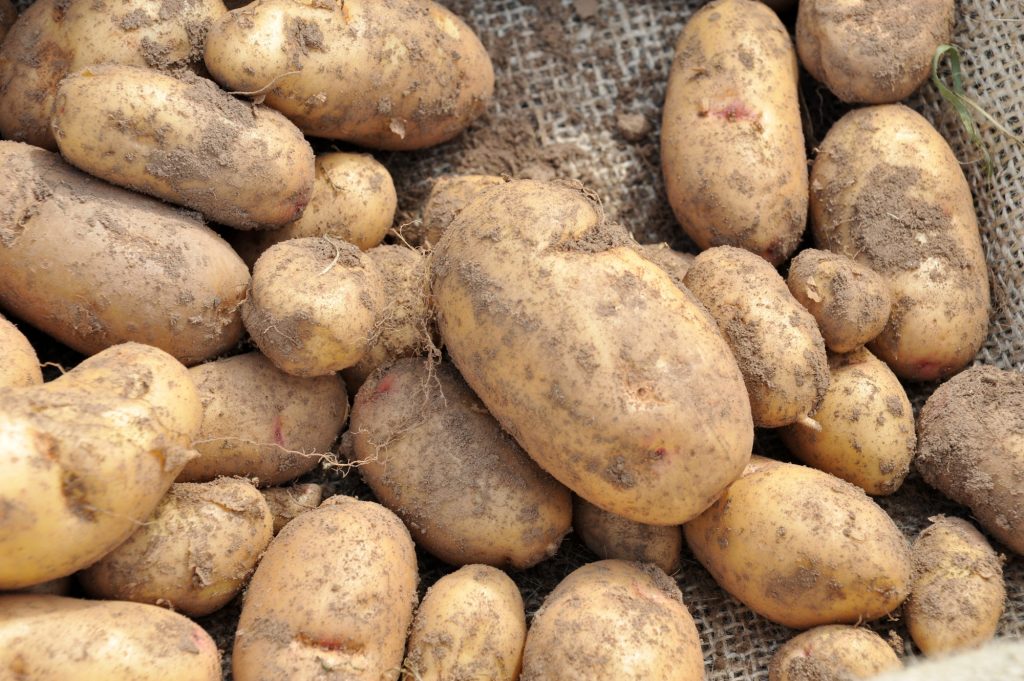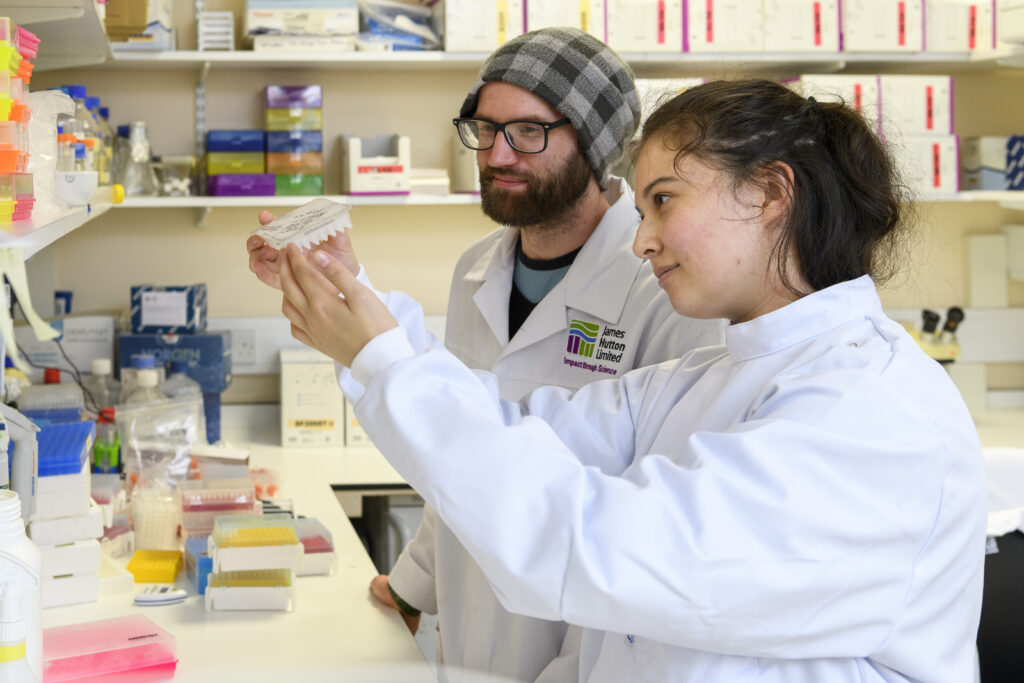Molecular Diagnostics Unit
Our Molecular Diagnostics Unit utilise both conventional techniques and advanced polymerase chain reaction (PCR) analysis, playing a crucial role in supporting agriculture and horticulture across various sectors.
James Hutton Institute Scientific Service offers a comprehensive suite of diagnostic services for crops on soft fruit, potato and barley, helping growers and researchers make informed decisions.
Molecular Diagnostics unlocking better crops
Molecular diagnostic tests can identify specific nucleic acid sequences in plants associated with disease resistance, agronomic/quality traits, and other key crop attributes. These tests are applicable to both early-generation breeding material and fully developed varieties and can be used on a wide range of plant tissue types.
What the Molecular Diagnostics Unit Offers:
- Validation and commercialisation of new and bespoke molecular markers (KASPTM) developed at the James Hutton Institute
- Screening of germplasm to detect gene markers linked to desirable or undesirable traits
- Conventional and molecular testing on potatoes, focussed on evaluating disease resistance and identifying genes associated with resistance to late blight, potato cyst nematodes (PCN), and viruses, to aid in the development of superior breeding material
- Trueness-to-type testing for propagators, nurseries, growers and breeders using DNA fingerprinting technology to verify the authenticity of plant varieties and evaluate their genetic relatedness
- Supporting raspberry breeding programmes by using microsatellites to identify root rot resistant progenies, thereby strengthening breeding efforts to improve resistance.
- KASPTM marker screening of barley lines and varieties for resistance to Barley Yellow Mosaic Virus (BaYMV) and Barley Mild Mosaic Virus (BaMMV)
- Identification of epiheterodendrin (EPH) non-producing barley lines in the early stages of the breeding process to aid in the development of new varieties for the whisky industry
Vanessa Young, Head of Molecular Diagnostics/Potato Breeder
James Hutton Institute Scientific Service offers a comprehensive suite of diagnostic services for crops on soft fruit, potato and barley, helping growers and researchers make informed decisions.



These diagnostic tools facilitate more efficient breeding, improved disease management, and enhanced quality control, contributing to the sustainability and productivity of agricultural and horticultural industries.
